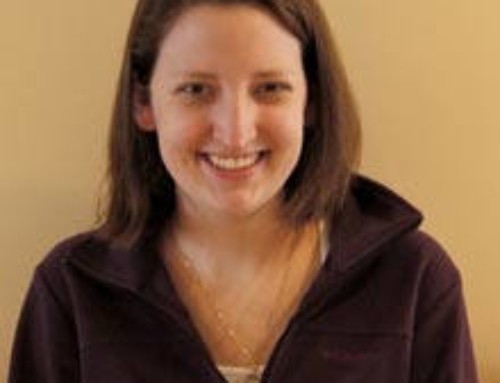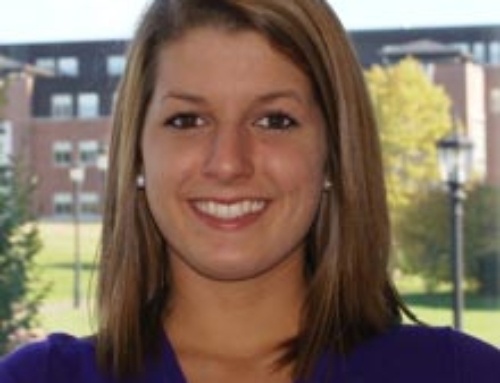 When political science professor Stephen Aylward passed away last fall, he left a legacy of kindness, intelligence and humor. He also left behind an annotated list of some of his favorite reads. Here are a few of them, followed by books recommended by other members of the campus community.
When political science professor Stephen Aylward passed away last fall, he left a legacy of kindness, intelligence and humor. He also left behind an annotated list of some of his favorite reads. Here are a few of them, followed by books recommended by other members of the campus community.
✦ The Cold War: A New History by John Lewis Gaddis. Gaddis’ genius is to identify key themes in this decisive period of human history and synthesize an immense amount of activity into a relatively short one-volume history of 350 pages. An interesting page-turner for history buffs, foreign policy wonks and those who participated.
✦ The Case for God. Karen Armstrong is one of my favorite writers on religion and its history. She combines her love of God with an obvious love of people. Her histories are grand pageants; her ideas stimulating and provocative. You won’t agree with everything she ventures, but you’ll find yourself uplifted by contemplating it all.
✦ Memoirs of My Services in the World War, 1917-18. Later to become World War II Army Chief of Staff, Secretary of State and Secretary of Defense, a younger George Marshall penned this reminiscence in the early 1920s. Marshall’s insights into the organization and training in France of a hastily raised American Expeditionary Force will ring true for vets, managers of any ilk and history buffs alike. Eminently readable and engaging, the work is leavened with anecdotes that place the reader right into the situation.
✦ The Battle for America 2008 by Dan Balz and Haynes Johnson. Two veteran reporters produced the first authoritative major account of the last presidential election. Much of the book’s value lies in tying together all the incredible twists and turns of an intricate primary season and intense autumn campaign conducted in the face of a deteriorating economy; however, the authors’ research, interviews and personal contacts offer new insights.
✦ The Way to Win: Taking the White House in 2008 by Mark Halperin and John F. Harris. Finally, for real aficionados, re-read this masterful – but not completely prescient – 2006 preview which took the lessons of the Y2K and 2004 elections and projected them out to 2008. How much did they get right, and how much was a surprise? The answer will surprise you!
✦ Dr. Aylward added this footnote to his reading list: Used book sales on Amazon allow us to quickly obtain original copies of the young adults’ fiction of our parents and grandparents, with its wonderful reflections of bygone eras and attitudes – when motorcars and airships were new and rare, when a young person’s dream would be to fire or even drive a steam locomotive. Some series that I’ve enjoyed include:
Dick Prescott at West Point by H. Irving Hancock (For those with theological disagreements with this series, there’s Dave Darrin at Annapolis by H. Irving Hancock); Tom Swift inventor series by Victor Appleton; Ralph of the Roundhouse railroad series by Allen Chapman; Grace Harlowe, especially the Grace Harlow Overseas series describing her contributions in WWI, by Jessie Graham Flower; The Khaki Girls, another WWI-based series, by Edna Brooks.
✦ A Grief Observed by C.S. Lewis. I first read this book when I was a student here at Saint Joseph’s College. It was assigned as part of a Shakespeare course, and I have kept a copy ever since. The book is really the journal that C.S. Lewis (author of The Narnia Chronicles and other books) kept after his wife died of cancer. In the book, he struggles with believing in God after his wife’s death. It is a memorable account of faith, as Lewis deals with grief, anger, and, finally, acceptance. (Sr. Patricia Flynn, RSM, Ph.D., assistant professor of philosophy)
✦ Widely recognized as the most influential novel in the English language,Ulysses tells the story of one ordinary day in 20th-century Dublin. The author’s theme is simple: the life-affirming forces of love and laughter can and must triumph over tyranny and hatred. But the means Joyce used to communicate this theme – a different style for each chapter, a densely allusive texture, and the infamous stream of consciousness technique – offer challenges that account for the fact that most people have heard of the book but never read it. (Dr. Jackie McCurry, associate professor of English)
✦ Michael Pollan, The Botany of Desire; Trevor Corson, The Secret Life of Lobsters; Mark Kurlansky, Cod (Dr. Brian Shelley, assistant professor of biology)
✦ Mountains Beyond Mountains by Tracy Kidder; Three Cups of Tea by Greg Mortensen; Pride and Prejudice by Jane Austen (Political science major Courtney Hoffses ’12)
✦ At Home: A Short History of Private Life by Bill Bryson; Drive by Daniel Pink; Color: A Natural History of the Palette by Victoria Finlay (Mary Lynn Engel, business administration faculty)



